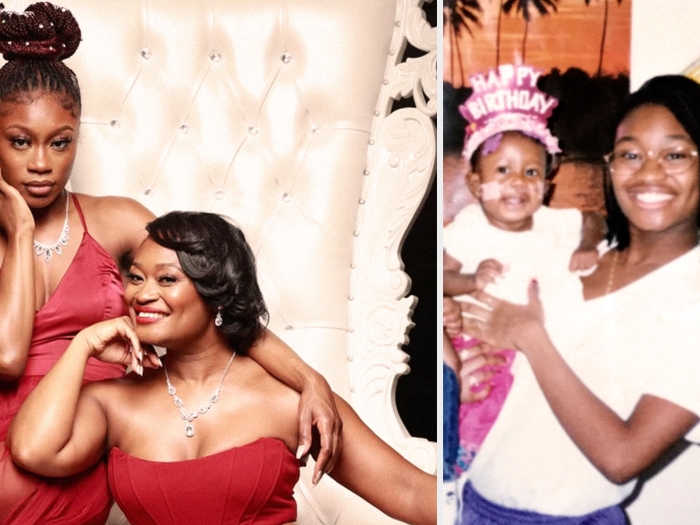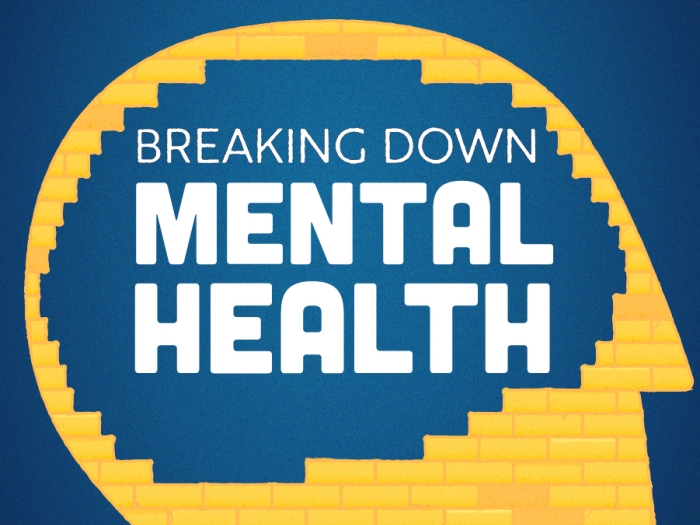In light of advancing fetal diagnostic capabilities, a team of U-M physicians is working to improve the decision-making process for families facing complex decisions about their unborn child’s care.
7:00 AM
Author |

Expectant parents facing extremely premature delivery, or a severe congenital disorder diagnosis, are often confronted with complex, emotionally charged decisions about the management of their pregnancy and care for their child upon delivery.
MORE FROM THE LAB: Sign up for our weekly newsletter
"Many families find themselves deciding between a complicated range of options, from aggressive fetal intervention to comfort care for the baby after birth," says Naomi Laventhal, M.D., a neonatologist at C.S. Mott Children's Hospital. "And there are no right answers."
Laventhal and colleague Stephanie Kukora, M.D., have observed how families and providers struggle with perinatal decision-making.
"We could see how — across the field — there was a wide variation in how families seemed to feel about their decisions, and how they came to the decisions they made," says Kukora.
"We knew we could do better for these patients."
Supporting difficult decisions
The Michigan Medicine team, together with colleagues at Christiana Care and Medical College of Wisconsin, have been studying what influences the decision-making process for parents facing a complex fetal diagnosis.
A broad, inclusive prenatal consultation, delivered in a coordinated manner, plays a strong role, the team finds.
So, too, does values-based decision-making — when clinicians work to get a feel for which values are important to families, and help them reach a decision that best fits with what the family prioritizes.
"These parents are the ones that will find themselves affected on a daily basis by their decision. It's our job to help them identify the values that are most important to them, so they can come to a decision that will be right in their situation," says Kukora.
Says Laventhal, "Many of the right ingredients are often a part of the prenatal consultation process at most major centers, but consistency — being sure the support mechanisms came together in the right way every time — is hard to achieve."
SEE ALSO: Artificial Placenta Holds Promise for Extremely Premature Infants
Further, Laventhal notes the importance of a sustainable framework. "As our fetal program has grown, we've had to find ways to scale our multidisciplinary model to make sure the right interactions happen even through periods of programmatic growth when resources are stretched thin."
These parents are the ones that will find themselves affected on a daily basis by their decision. It's our job to help them identify the values that are most important to them so that they can come to a decision that will be right in their situation.Stephanie Kukora, M.D.
Improving support for antenatal decision-making
The multidisciplinary model at U-M's Fetal Diagnosis and Treatment Center places neonatologists in the fetal clinic, alongside colleagues in maternal fetal medicine, fetal surgery and pediatric surgery, neurology and neurosurgery, nephrology and urology, and palliative care. This enables formalized, integrated consultations for families.
Parents also have the option to visit the NICU and meet with parent hosts — a team of parents whose children spent time in the NICU as infants.
"The U-M team has really worked to provide anticipatory guidance based on the family's values, with a focus on equipping them with a full, holistic body of information that is as minimally intimidating as possible," says Kukora.
In addition to a refined clinic model, U-M and colleagues are testing a decision aid to support parents facing complex decisions around pregnancies with predicted extreme premature delivery (22 to 25 weeks' gestation).
"Shared decision-making is a complicated issue to understand. We're trying to get our arms around it fully, looking at it from every angle," explains Kukora. "We want to understand how parents are making these decisions. We want to train doctors to better support parents through the decisions, and we want to be deliberate in our efforts to evaluate how the changes we are making affect the decision-making process."
Laventhal says prognostic uncertainty is a complicating factor the team is working to understand and improve. "The fact is, we don't have guaranteed answers as to what your baby may face with some fetal anomalies," says Kukora.
Confronting such variability and supporting expectant parents' emotional needs often triggers significant anxiety in providers.
"But our preliminary research to understand the factors involved confirms that honest disclosure of uncertainty combined with a focus on values-based, shared decision-making is critical to not only helping families make decisions but also helping them come to terms with their decisions.
"So we are working now to train physicians on coping with prognostic uncertainty, navigating conversations with families, and maintaining both transparency and compassion."
Teaching shared decision-making
The need for antenatal counseling has increased, but resources haven't always kept pace. "Formal training in complex antenatal counseling is not consistently part of the curriculum neonatologists and pediatric specialists go through as part of their medical education," says Laventhal.
Kukora and Laventhal are using innovative medical improv techniques to help physician trainees practice realistic — and often dynamic — conversations that take place with families facing complex prenatal diagnoses.
"Our words matter; the way we communicate uncertainty matters; the way we listen matters; our reactions matter," says Kukora. "The improv model helps us really tap into the spontaneity and authenticity of these really complex, often emotional conversations with families."
Kukora and Laventhal are taking their show on the road this weekend as more than 6,000 pediatricians, research scientists and health care providers converge at the Pediatric Academic Societies annual meeting in San Francisco. In addition to presenting on current research at the summit, the pair are hosting a Complex Antenatal Counseling workshop, with their research counterparts from Delaware and Wisconsin, for neonatologists, palliative care providers and other pediatric specialists involved in perinatal counseling.
The team has developed simulated scenarios of complex antenatal counseling for the workshop, along with a practical curriculum for health professionals and trainees to become better equipped to manage these challenging encounters.
"We've also built in a module for an interactive discussion about how the tools can be applied and adapted to different types of institutions," Laventhal says.
"We've learned a lot and have a lot to share. But we are also excited to learn more about how we — the medical community — can all do this better together."
Pediatric Academic Societies participants can join Laventhal and Kukora in their workshop on Sunday, as well as at poster presentations and at a platform presentation at the summit this weekend in San Francisco.

Explore a variety of healthcare news & stories by visiting the Health Lab home page for more articles.

Department of Communication at Michigan Medicine
Want top health & research news weekly? Sign up for Health Lab’s newsletters today!





